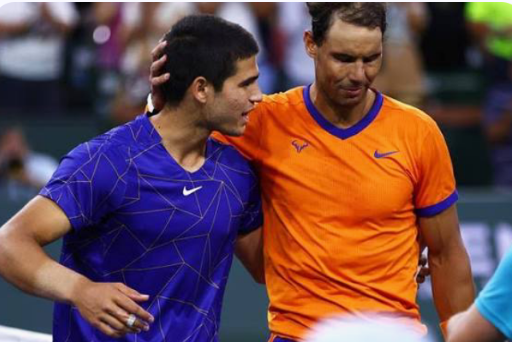Spanish tennis is experiencing a shift in leadership as Rafael Nadal’s career faces challenges, while the rising star Carlos Alcaraz takes the stage at the Australian Open. Alex Corretja suggests that Alcaraz represents the “new generation” that embraces a faster and more entertaining style of play, symbolizing a changing of the guard.
Despite Nadal’s return from injury, Alcaraz’s notable performances in the tournament’s first week, defeating Richard Gasquet and Lorenzo Sonego, highlight the young player’s potential. Former world No. 2 Corretja acknowledges Alcaraz’s ability to win matches akin to tennis legends like Djokovic and Federer, drawing understandable comparisons.
Corretja emphasizes the emotional and dynamic aspect that Alcaraz brings to the game, describing him as a player who exudes joy and embodies the characteristics of the modern era, where everything is expected to be faster. The comparison with Nadal, who has been a tennis icon in Spain, leads Corretja to express the sentiment that they are “changing the king” with the emergence of Alcaraz.
Mats Wilander raises the question of whether facing Alcaraz is less daunting than facing Nadal due to the younger player’s more “fun” approach to the sport. Corretja acknowledges the difference, noting that Alcaraz’s style feels more friendly and less intimidating, creating an atmosphere akin to a practice match rather than a formidable competition.
Corretja reflects on the change in mindset among younger players like Alcaraz, contrasting it with the pressure and respect felt during his own era facing tennis greats. He appreciates the relaxed and carefree attitude of the new generation, emphasizing that they play for the joy of the game rather than being burdened by concerns about results or history.
While Alcaraz may not have displayed peak performance in Melbourne yet, Corretja suggests a deliberate approach, speculating that the young player may be planning to peak later in the tournament. The challenging matches early on, according to Corretja, serve as necessary steps for Alcaraz to find his rhythm and build momentum as he progresses in the Australian Open.
In summary, the narrative revolves around the evolving landscape of Spanish tennis, with Alcaraz symbolizing a transition towards a more entertaining and free-spirited era, contrasting with the revered legacy of players like Nadal. The article explores the changing dynamics within the sport, with Alcaraz’s charisma and playing style capturing the attention of tennis enthusiasts.
